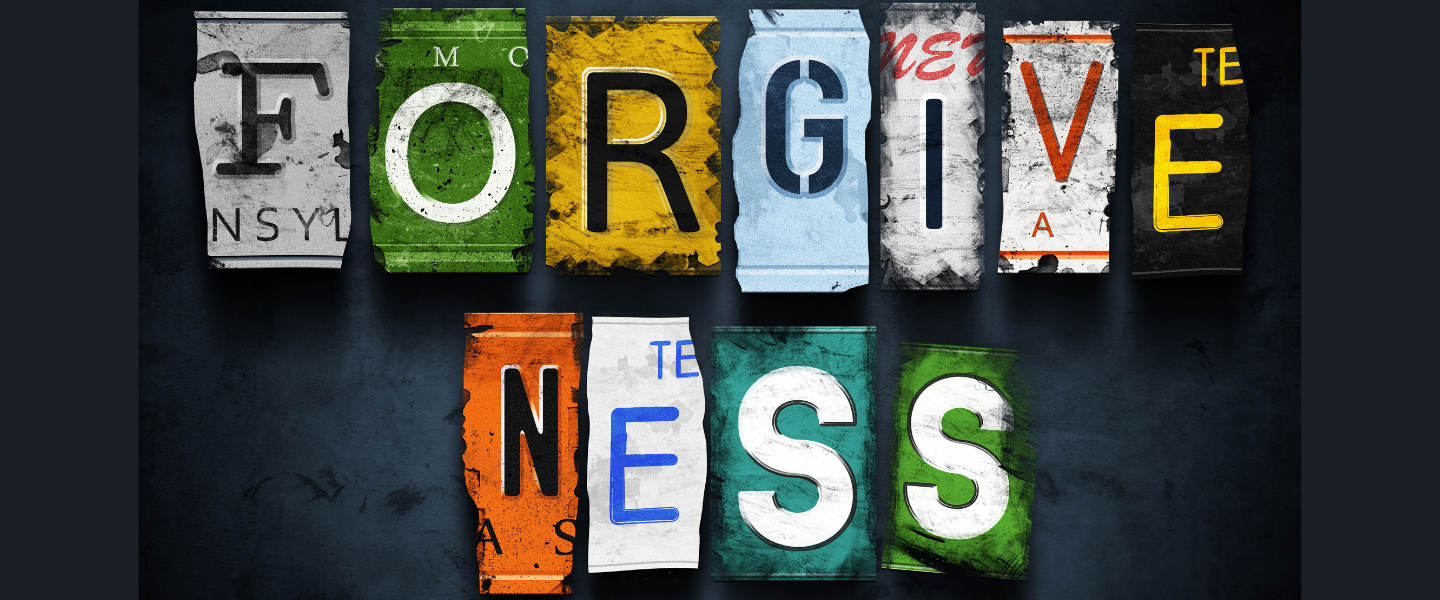
How Do We Forgive?
Are you a forgiving person?
Verse of the Day
‘and forgive us our sins, as we have forgiven those who sin against us.’
Today’s Devotional
The prior parts of the Lord’s Prayer have each been singular and unconditional declarations and requests. And then we land on this, a conditional request, which Jesus then explains in more detail: “If you forgive those who sin against you, your heavenly Father will forgive you. But if you refuse to forgive others, your Father will not forgive your sins.” (Matthew 6:14-15)
In Matthew 18, Jesus uses a parable to explain the importance of our forgiveness of others: ‘Then Peter came to him and asked, “Lord, how often should I forgive someone who sins against me? Seven times?” “No, not seven times,” Jesus replied, “but seventy times seven! Therefore, the Kingdom of Heaven can be compared to a king who decided to bring his accounts up to date with servants who had borrowed money from him. In the process, one of his debtors was brought in who owed him millions of dollars. He couldn’t pay, so his master ordered that he be sold—along with his wife, his children, and everything he owned—to pay the debt. But the man fell down before his master and begged him, ‘Please, be patient with me, and I will pay it all.’ Then his master was filled with pity for him, and he released him and forgave his debt. But when the man left the king, he went to a fellow servant who owed him a few thousand dollars. He grabbed him by the throat and demanded instant payment. His fellow servant fell down before him and begged for a little more time. ‘Be patient with me, and I will pay it,’ he pleaded. But his creditor wouldn’t wait. He had the man arrested and put in prison until the debt could be paid in full. When some of the other servants saw this, they were very upset. They went to the king and told him everything that had happened. Then the king called in the man he had forgiven and said, ‘You evil servant! I forgave you that tremendous debt because you pleaded with me. Shouldn’t you have mercy on your fellow servant, just as I had mercy on you?’ Then the angry king sent the man to prison to be tortured until he had paid his entire debt. That’s what my heavenly Father will do to you if you refuse to forgive your brothers and sisters from your heart.” (Matthew 18:21-35)
That’s a very stern warning from our Lord. So what is forgiveness and what does it look like? I will use Richard Foster’s explanation of this because it is so beautifully explained.
“Forgiveness does not mean that we will cease to hurt. The wounds are deep, and we may hurt for a very long time. Just because we continue to experience emotional pain does not mean that we have failed to forgive.
Forgiveness does not mean that we will forget. That would do violence to our rational faculties. Helmut Thielicke, a German pastor who endured the darkest days of the Nazi Third Reich, says, “One should never mention the words ‘forgive’ and ‘forget’ in the same breath” No, we remember, but in forgiving we no longer use the memory against others.
Forgiveness is not pretending that the offense did not really matter. It did matter, and it does matter, and there is no use pretending otherwise. The offense is real, but when we forgive, the offense no longer controls our behavior.
Forgiveness is not acting as if things are just the same as before the offense. We must face the fact that things will never be the same. By the grace of God they can be a thousand times better, but they will never again be the same.
What then is forgiveness? It is a miracle of grace whereby the offense no longer separates. If a husband ignores his wife, valuing business and all other things above her, he has sinned against her. The offense is real, and the hurt is real. A sacred trust has been broken. We speak rightly when we say that something has come between them. She will never forget this violation of respect. Even in old age she may feel an icy chill at the memory of this disregard.
But forgiveness means that this real and horrible offense shall not separate us. Forgiveness means that we will no longer use the offense to drive a wedge between us, hurting and injuring one another. Forgiveness means that the power of love that holds us together is greater than the power of the offense that separates us. That is forgiveness.”
If we want God to forgive us, we simply must forgive the people who have hurt us. But here’s the beautiful part: We can ask for God’s help to forgive others. As often as we need to ask. Because being a person of forgiveness is only possible through the grace of our Father. And the forgiveness that we desire from God depends on it.
Journal Prompts
Answer only the questions that seem relevant to you today.
Who do you need to forgive?
What do you need your Father to forgive?
How can you ask for God’s help to be forgiving?
